-
Why Should You Recycle Electronics?
In today’s digital age, our electronic devices are constantly evolving and adapting to include new features and hardware. When you are ready to dispose of a computer, cell phone, or other electronic device, think twice before you toss your item into the dumpster. A company that offers recycling serving Atlanta can help you recycle all of the e-waste that is generated by your home or business. Electronic recycling bins are designed to safely house electronic waste until it can be processed at a designated facility. Let’s review why recycling is so important when you are getting rid of your old electronics.
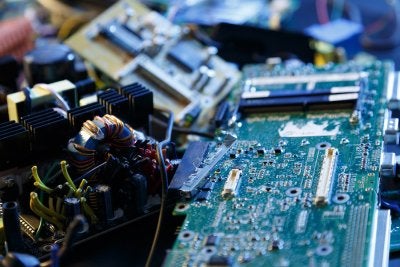
Provide Important Materials
One reason that e-waste recycling is so important is that your old, outdated electronic items may contain valuable materials that can be used in various industries. Cell phones, computers, and other electronics are filled with precious metals that have been mined out of the earth. Rather than depositing these materials in the trash, you can give them new life by sending them to a recycling facility.
Prevent Landfill Overflow
Our landfills are quickly getting filled up with electronic waste, along with many other types of items. By recycling, rather than tossing, your electronic waste, you can help to conserve the limited space that is still available in our country’s landfills. Since computers and other devices are made out of non-biodegradable materials, they will not be able to decompose after they have been thrown in the trash.
Avoid Toxic Pollution
Along with their precious metals and other valuable materials, electronic items often contain large amounts of toxic substances. After an electronic device is tossed in the trash, its toxic components will start to leech into the surrounding environment. A main component of the e-waste recycling process is to safely remove and dispose of any toxic chemicals or substances. When you take the time to donate your old electronics to a dedicated recycling facility, you can rest assured that you are doing your part to protect the planet from pollution.
-
Steps Your Business Can Take to Boost Your Recycling Habits
When your business creates a new recycling protocol, it can take some time before all of your workers are on board with the plan. In order to recycle effectively, it is crucial for every member of your team to implement recycling practices, throughout the workday. With services from a company that offers waste disposal and recycling serving Atlanta, you will be able to set up a streamlined recycling program that integrates smoothly with the workflow of your business. If you want to get your recycling plan up and running, here are some steps that your business can take to boost your recycling habits.
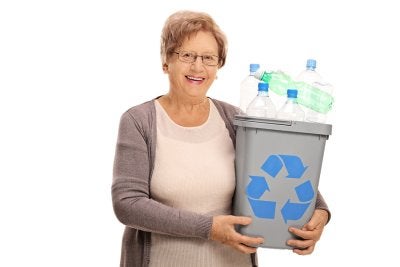
Place Recycling Bins In Strategic Areas
If your workers are unsure of the location of your recycling bins, they will be much less likely to recycle their waste, throughout the day. As you are setting up your new waste management plan, take the time to determine strategic recycling locations, throughout your commercial property. When your bins are easy to find and access, they will promote proper recycling habits among all your workers.
Create Clear Directional Signs
The recycling process can be confusing for even the most seasoned of employees. To reduce uncertainty about what can and cannot be recycled in each bin, create bold signage that provides clear directions about how to recycle correctly. These signs should be placed throughout your work environment. After you have put up your signs, you may find that more of your employees are ready to start recycling.
Designate a Special Area for Metal and Electronic Recyclables
While recycling paper and plastic can be done through the use of individual recycling bins, larger items may need to be placed in a designated area. To ensure that your workers are able to recycle their old electronics and large metal items, create a designated space that can house these materials. A waste management company can schedule monthly pickups so that you do not have to worry about bringing these items to the recycling center.
-
A Look at How Electronic Waste Is Recycled
Every year, up to 50 million tons of electronic waste products are thrown into landfills. In this video from Tom Mills, you will learn all about the importance of electronic waste recycling. Electronic devices contain harmful materials, which can be safely eliminated through the recycling process. A company that provides recycling bins in Atlanta can help you to create an E waste recycling program for your business.
If you are looking for a safe way to get rid of your old computer, television, or cellphone, do not hesitate to get in touch with a local recycling center. When you recycle, rather than toss, your electronic items, you can create valuable metal recycling resources. E waste recycling is also an effective strategy for keeping hazardous metals and chemicals out of the environment.
-
A Look at Electronics Stewardship
In today’s fast-paced world, businesses and educational facilities must continually update their electronics and other devices. In order to improve the recycling efforts of your company, you may want to embark on an electronics stewardship program. By focusing on electronics stewardship, you will be able to lead the way for sustainable electronic recycling and repurposing methods. A company that specializes in recycling serving Atlanta can help you create an effective electronics recycling program for your facility.
Electronics stewardship encompasses more than just recycling. Along with choosing to recycle your old electronic devices, you may also consider donating them to worthy organizations. Many nonprofits, schools and other institutions can benefit from receiving electronics that would otherwise be tossed into recycling bins. Eligible workers can also be trained with skills that allow them to rehabilitate older electronic devices, such as computers. By creating jobs and reducing waste, electronics stewardship represents the future of sustainability.
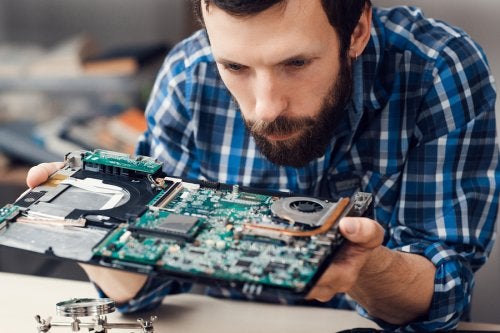
-
Steps for Recycling Industrial Hazardous Waste
Recycling hazardous waste is an important part of industrial waste management that helps conserve resources and save on manufacturing costs. If you are interested in recycling industrial hazardous waste near Atlanta, then you can benefit from becoming familiar with the following steps:
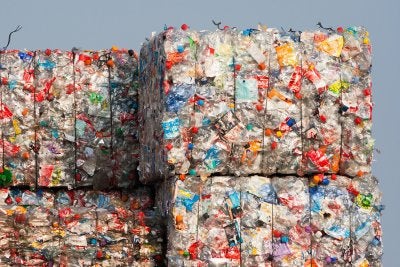
Determine Waste Regulations
The first step in properly recycling hazardous waste is to learn about the EPA waste disposal regulations for the material that you are working with. Refer to the EPA’s regulatory definitions to determine what category your waste material falls under.
Consider Cost-Accounting
You will find that there are many cost-accounting tools available to companies. These tools can help you track your company’s resource use and improve its resource efficiency. Cost-accounting tools usually consider factors like recycling activities, pollution prevention measures, energy savings, and the reduction of greenhouse gas emissions.
Choose a Facility
Once you are ready to begin the industrial waste recycling process, the next step is to locate a responsible recycler. The recycling facility should have a history of permit and environmental compliance, be financially sound, and employ responsible waste management practices. Also, learn if the facility has adequate pollution liability insurance, provisions for any potential closure and cleanup costs, and an effective drop-off and tracking protocol.
Confirm Recycling Legitimacy
Ensuring that your industrial hazardous waste will be properly handled is an important part of the recycling process. You should confirm that the recycling company is legitimate and has well-maintained records of recycling transactions. Also, determine if the secondary material can be effectively used as claimed and if it is being used in amounts more than necessary.
Track Recycling Progress
You have 2 good reasons to measure your success when it comes to recycling industrial hazardous waste. First, monitoring and reporting your company’s recycling progress can have a beneficial impact on its public image. Second, keeping track of your recycling performance provides you with information to share with stakeholders and investors to demonstrate your company’s adherence to environmental regulations.
-
What Is Creative Reuse?
Recycling serving Atlanta can be done in quite a few different ways . Recycling can be broken down into downcycling and upcycling, and the latter is also known as creative reuse. In some senses, creative reuse is the most productive form of waste disposal because it aims to turn unwanted or unused items into something more practical or valuable. You can apply the principles of creative reuse to almost anything, and thinking outside the box can go a long way. Keep reading if you’d like to learn a little bit more about creative reuse.
The purpose of upcycling and creative reuse is to add value to an existing product. This is in contrast to downcycling, which takes a product and recycles it in a way that gives it less value. Upcycling is particularly popular in the art community. With a creative eye, you can take old, broken, or worn out products and use them to create interesting sculptures, still life paintings, or unique photographs. By repurposing old materials that would otherwise be thrown away, you save room in landfills and get to enjoy more valuable products. As is the case with all recycling, this goes a long way in protecting the environment.
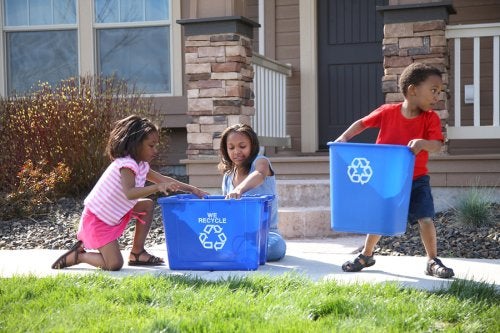
-
History’s First Recyclables
The history of recycling can be traced as far back as the 1800s. During this era, people of all social categories chose to repurpose or reuse items, rather than tossing them into the trash. While today we are familiar with plastic recycling and scrap metal recycling, the earliest recyclables were much more unusual. By renting new recycling bins in Atlanta , you can make sure that you have space for all of your recycled goods.
Some of history’s first recyclables were items that were commonly found around homes of the era. In the 19 th century, clothing items were recycled to create rags, paper, and other essential goods. Metal items were also among the first recycled goods. Well into the 20 th century, families also recycled and reused other household items, such as biscuit tins, flour sacks, and cooking waste. The earliest recycling efforts paved the way for the modern methods that we use today.
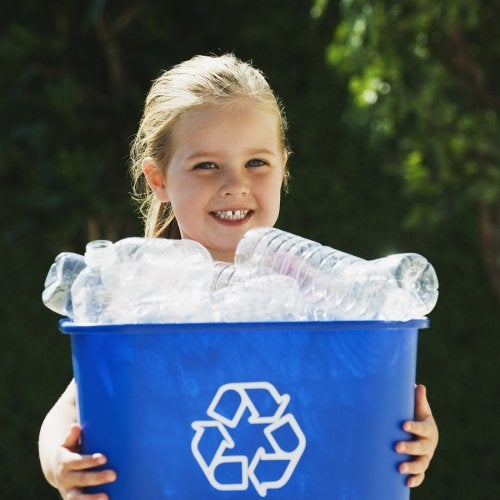
-
Why Your Carbon Footprint Matters
How often do you throw your trash into recycling bins ? Recycling things like aluminum cans, office paper, and glass bottles is a simple way to reduce your carbon footprint. If you’re wondering why many people are looking for ways to save energy and reduce waste near Atlanta, then read on to learn why your carbon footprint matters.
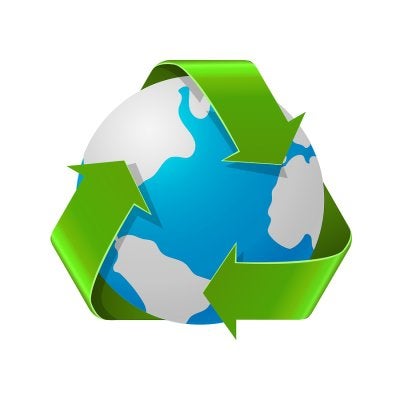
Environmental Changes
As the carbon footprints of people and industries increase, their effect on the environment does as well. Your carbon footprint corresponds with the overall amount of greenhouse gas emissions that you are responsible for due to your everyday activities, meaning that your carbon footprint relates to the climate change associated with global warming. For example, the rising temperatures affect precipitation rates and cause vegetation patterns and locations to change. Also, rising sea levels can displace people living in coastal towns and cities, and the erosion of shorelines can destroy shoreline ecosystems.
Wildlife Impact
The warming temperatures have influenced wildlife, as well. Changing weather patterns can threaten the species that depend on any vegetation unable to withstand the shifting climate. For example, migratory birds sometimes reach their destination only to find that their primary food source is unavailable due to unusual temperatures. At the same time, polar bears are losing their hunting grounds because of melting arctic ice.
Human Health
Food crops are heavily influenced by the weather, so it’s no surprise that rising temperatures are affecting the food supply in some areas. The changing climate has led to drought in some parts of the world, and the lack of precipitation results in smaller crops and increased levels of malnutrition. Also, drought can cause a lack of clean drinking water, and warmer climates allow disease-carrying mosquitoes to survive in areas that were once too cool for them.
Your Carbon Footprint
Reducing your carbon footprint can be accomplished in many ways. Recycling materials like glass, aluminum, and plastic can lower the amount of energy used to process raw materials. Also, you can unplug devices that aren’t in use, adjust your thermostat settings, and switch to energy-efficient light bulbs to reduce your carbon footprint.
-
What to Do with Old Computers
When people think about recycling in Atlanta , they often forget to consider electronics recycling. Many different types of commercial, industrial, and retail businesses generate electronics waste when they replace their broken appliances and equipment with new models. Your local waste management company or recycling center can offer you valuable information and recycling facts about how to dispose of old computers and other electronic devices.
When you throw an old computer into a dumpster, it is simply hauled away to a landfill during trash pickup. A computer will not decompose naturally, but it does contain many toxins that are bad for the environment and may seep into the soil in a landfill. Instead, you can arrange for bulky pickup or junk removal of your electronic devices through your waste management company. Some recycling centers reuse or refurbish computer parts, while others may donate working electronics to schools or charitable organizations.
If there is nothing to salvage or reuse in your computer, your recycling center will ensure that it is disposed of according to the federal and local laws. Reputable recycling centers will recycle electronic devices without resorting to using landfills, incinerators, prison labor, or selling it to a developing country.
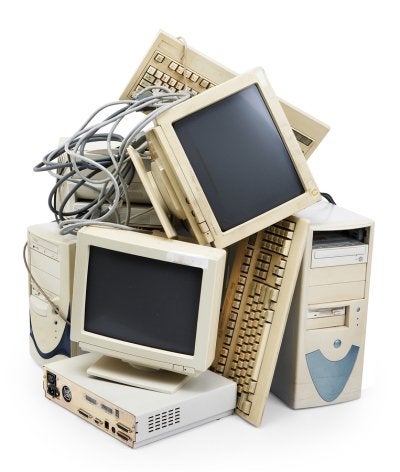
-
Ways to Reduce, Reuse, and Recycle for the Environment
As a business owner, it’s important to think of the best ways that your company can reduce, reuse, and recycle in Atlanta . Your local waste management company can provide you with valuable information about local recycling centers and key recycling facts that will help you implement a comprehensive recycling program in your building. Here are just some of the ways that you can reduce, reuse, and recycle throughout your company.
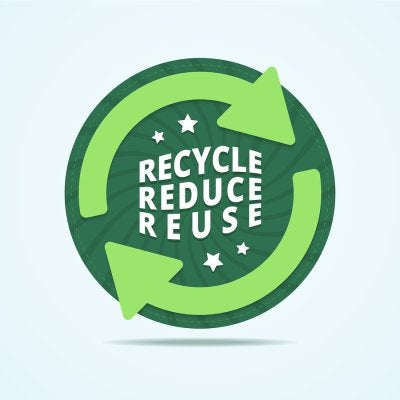
Reduce Your Use of Paper and Office Supplies
Most businesses generate a lot of waste, but you can reduce the waste you generate in a number of ways. Instead of printing out documents, develop an internal messaging system through which you can convey information to employees. Set up an e-billing system for vendors and clients so that you no longer receive paper copies of bills. Encourage employees to only use non-recyclable office supplies when it is absolutely necessary.
Order Green Products and Energy-Efficient Appliances
The person who is in charge of ordering company supplies can also contribute to your efforts to reduce, reuse, and recycle. You can order green products that can be recycled, or that are biodegradable and won’t contribute to hazardous waste or pollution. You can also purchase recycled and recyclable paper and packaging materials. When it’s time to replace office appliances, you can opt for appliances that are energy-efficient and that won’t contribute to pollution and hazardous waste.
Recycle and Reuse Whenever Possible
When you contact your local waste management company about garbage disposal and junk removal, you should also ask for some important recycling facts. Your waste management company can provide you with recycling bins to place around the building to encourage visitors and employees to recycle. If you’re in need of junk removal, you can find out if any items are eligible for scrap metal recycling, cardboard recycling, plastic recycling, or electronics recycling. You may also be able to share and reuse certain items, like file folders and envelopes, throughout the company.
RECENT POSTS
categories
- Uncategorized
- Waste Management Atlanta
- Waste Disposal and Recycling
- Hazardous Waste Disposal
- Chemical waste removal
- solid waste removal
- R3 Program
- Sustainable Organizations
- Sustainable Waste Removal
- Commercial Waste Removal
- Materials Management Program
- Dumpster Rental
- Roll Off Dumpsters
- Construction Site Waste Removal
- Sustainability
- Recycling in Atlanta
- Industrial Recycling
- Industrial Waste Removal Services
- Southern Waste & Recycling
- Waste Removal Atlanta
- Waste Specialists
- Atlanta
- Infographic
- Front Load Dumpsters
- Rear Load Dumpsters
- Reusable Electronics
- Dump Truck Atlanta
- Recyclable Electronics
- Trash Compactors
- Recycling
- Recycling Program
- Office Recycling
- Metal Recycle
- Electronic Waste
